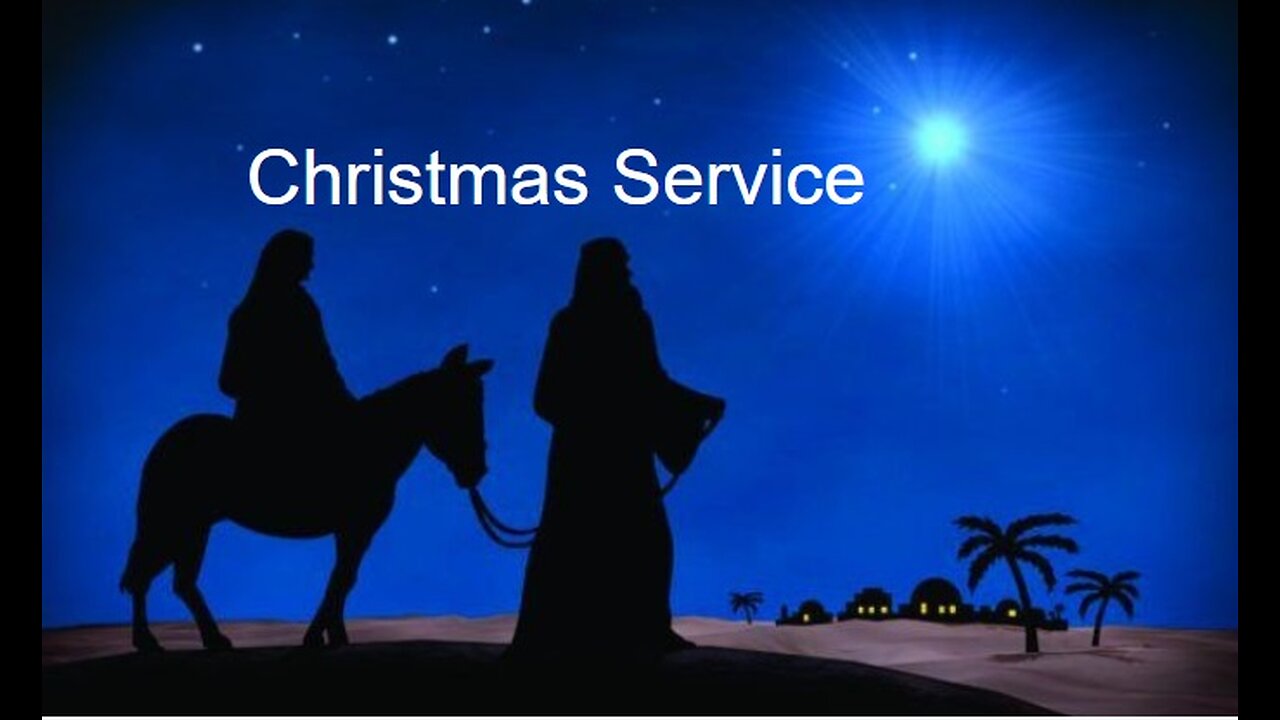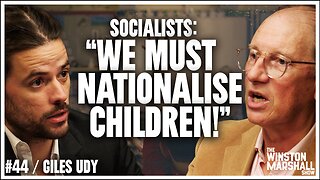Premium Only Content

Christmas 2024 02_ Matthew 2:13-23 The Messiah Fulfills Prophecy in His Early Years
SBC Family,
Good afternoon. I decided to continue with our Christmas theme this Sunday so we can finish the interesting story of Matthew 2. This chapter is used by authors and seminary professors to teach the four ways the NT authors quote the OT. We already saw the first one in Mt. 2:5-6 which is a case of direct fulfillment. It is very simple and straightforward. Jesus would be a shepherd-ruler born in Bethlehem of Judea (Mic. 5:2; 2 Sam. 5:2). The other three are more difficult. In fact. D. A. Carson said that if you look at the OT passages Matthew quotes to prove Jesus is the Messiah it appears he is "not playing fair with the text!" However, upon closer evaluation, Matthew was very conversant with the OT text. He cited the passages he cited because he really saw the things that he claims were fulfilled in Jesus in the OT texts. It's amazing because it is extremely challenging to understand how he was interpreting the OT. But indeed, if we are careful students of the OT, we can duplicate his exegesis. There is nothing weird or mystical going on.
The second way the NT authors quote the OT is typological fulfillment. This is where there is a correspondence or filling out of a pattern established by Israel in the Messiah. The question is, "Does the OT text actually set up a type-antitype relationship between Israel and the Messiah?" If it does there is sound grammatical-historical ground for Matthew's usage of Hos. 11:1, which many think is completely odd. The third way the NT authors quote the OT is applicational fulfillment. This is where a current event is similar to a historical event so that the author makes an application to the current event. It fulfills it in the sense of following the same pattern. This will be Matthew's usage of Jer. 31:15. Finally, the fourth way the NT authors quote the OT is summary fulfillment. This is where all the prophets predicted something about the Messiah and the NT author simply summarizes it. He does not quote any prophecy directly from the OT, but he does summarize it tersely.
These passages may seem "strange" or "mystical" to the common believer who is not a student of the word, but careful analysis yields insight into how studious Matthew and other NT authors were. They poured over details of the OT text, observed themes, and connected them to understand the progressive thematic development through the OT that came to consummation in Messiah. They saw the OT as essentially a Messianic document and Matthew demonstrates this with great excellence. This should be no surprise since the Messiah Himself said,
“These are My words which I spoke to you while I was still with you, that all things which are written about Me in the Law of Moses and the Prophets and the Psalms must be fulfilled.”
- Lk. 24:44
There are no notes for tomorrow. I am attempting a new way of teaching that requires me to memorize the relevant texts and historical background rather than depend on notes.
Grace to you,
Jeremy
-
 LIVE
LIVE
Scottish Viking Gaming
3 hours ago💚Rumble :|: SUNDAY FUNDAY :|: Virginia has two Verginers, Change my Mind!
757 watching -
 1:49:50
1:49:50
Winston Marshall
2 days agoThe DARK Reality of Socialism - Historian Giles Udy
14.1K31 -
 LIVE
LIVE
Sports Wars
1 hour agoBengals STAY ALIVE In OT Thriller, ESPN's Ryan Clark SLAMMED, NFL DESTROYS NBA On Christmas
573 watching -
 9:37
9:37
EvenOut
19 hours ago $1.83 earnedThe Non-Reflecting Mirror Scare Twin Prank!
6.65K1 -
 11:19
11:19
Tundra Tactical
18 hours ago $2.25 earnedI Saw How CMMG Makes Guns.
9.1K5 -
 15:34
15:34
Misha Petrov
14 hours agoReacting To TikTok’s Most DELUSIONAL Takes!
7.42K17 -
 1:52:24
1:52:24
Squaring The Circle, A Randall Carlson Podcast
1 day ago#032 Flournoy Holmes' Artwork Helped Define The Southern Rock Phenomenon of The Early 1970's
15.6K3 -
 19:56
19:56
inspirePlay
1 day ago $0.01 earnedWalking with Lions & Facing Africa’s Wild Side | Safari Adventure with the Grid Championship Crew!
2.57K -
 10:50
10:50
RTT: Guns & Gear
1 day ago $0.34 earnedBudget Friendly Carry 2011: EAA Girsan Brat 2311
10.6K3 -
 3:49:06
3:49:06
Alex Zedra
15 hours agoLIVE! New Game | Nuclear Nightmare
102K13
-
 LIVE
LIVE
Scottish Viking Gaming
3 hours ago💚Rumble :|: SUNDAY FUNDAY :|: Virginia has two Verginers, Change my Mind!
757 watching -
 1:49:50
1:49:50
Winston Marshall
2 days agoThe DARK Reality of Socialism - Historian Giles Udy
14.1K31 -
 LIVE
LIVE
Sports Wars
1 hour agoBengals STAY ALIVE In OT Thriller, ESPN's Ryan Clark SLAMMED, NFL DESTROYS NBA On Christmas
573 watching -
 9:37
9:37
EvenOut
19 hours ago $1.83 earnedThe Non-Reflecting Mirror Scare Twin Prank!
6.65K1 -
 11:19
11:19
Tundra Tactical
18 hours ago $2.25 earnedI Saw How CMMG Makes Guns.
9.1K5 -
 15:34
15:34
Misha Petrov
14 hours agoReacting To TikTok’s Most DELUSIONAL Takes!
7.42K17 -
 1:52:24
1:52:24
Squaring The Circle, A Randall Carlson Podcast
1 day ago#032 Flournoy Holmes' Artwork Helped Define The Southern Rock Phenomenon of The Early 1970's
15.6K3 -
 19:56
19:56
inspirePlay
1 day ago $0.01 earnedWalking with Lions & Facing Africa’s Wild Side | Safari Adventure with the Grid Championship Crew!
2.57K -
 10:50
10:50
RTT: Guns & Gear
1 day ago $0.34 earnedBudget Friendly Carry 2011: EAA Girsan Brat 2311
10.6K3 -
 3:49:06
3:49:06
Alex Zedra
15 hours agoLIVE! New Game | Nuclear Nightmare
102K13